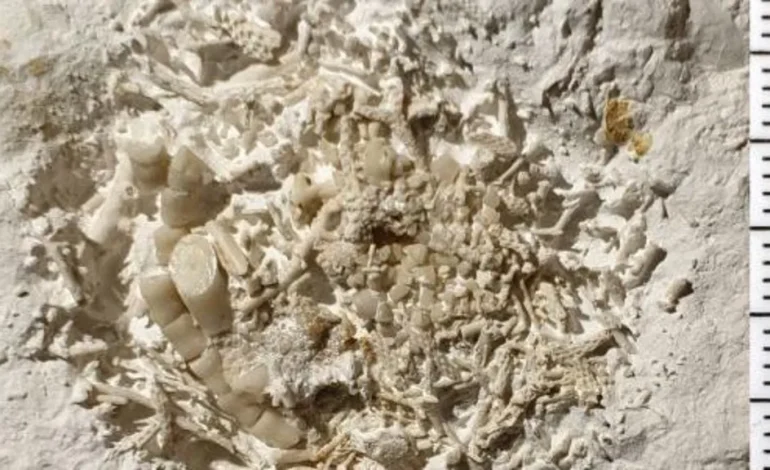A remarkable discovery has been made in Denmark: a piece of fossilized vomit dating back 66 million years to the late Cretaceous period.
Local fossil enthusiast Peter Bennicke found the unusual specimen at Stevns Klint, a UNESCO-listed coastal cliff known for its rich fossil deposits.
Bennicke, a self-described “fossil geek,” spotted fragments embedded in chalk that turned out to be pieces of sea lilies — marine creatures related to starfish and sea urchins. Curious about the find, he brought it to the Museum of East Zealand, where experts confirmed it to be ancient regurgitated material, likely from a fish.
Paleontologist and museum curator Jesper Milan described the find as “truly an unusual discovery.” He explained that during the Cretaceous period, fish and sharks consumed sea lilies, which are difficult to digest due to their hard calcareous plates. The indigestible fragments would then be vomited up, preserving evidence of ancient dietary habits.
“This find gives us a rare glimpse into life on the ocean floor during the age of dinosaurs,” Milan said. “It tells us something about who was eating who 66 million years ago.”
The vomit contained fragments from at least two species of sea lilies, underscoring its importance in reconstructing past ecosystems.
Discoveries like this are valuable for understanding prehistoric ecosystems and interactions between marine species. Fossilized vomit, though rare, can provide unique insights into food chains and marine life that existed millions of years ago.
“This type of find is important for reconstructing past ecosystems,” the museum said in a statement. “It provides crucial information about which animals were eaten by which predators.”
The discovery has drawn widespread attention, sparking interest beyond Denmark.
“This might just be the world’s most famous piece of puke,” Milan quipped.
With input from the Guardian and BBC.










The latest news in your social feeds
Subscribe to our social media platforms to stay tuned